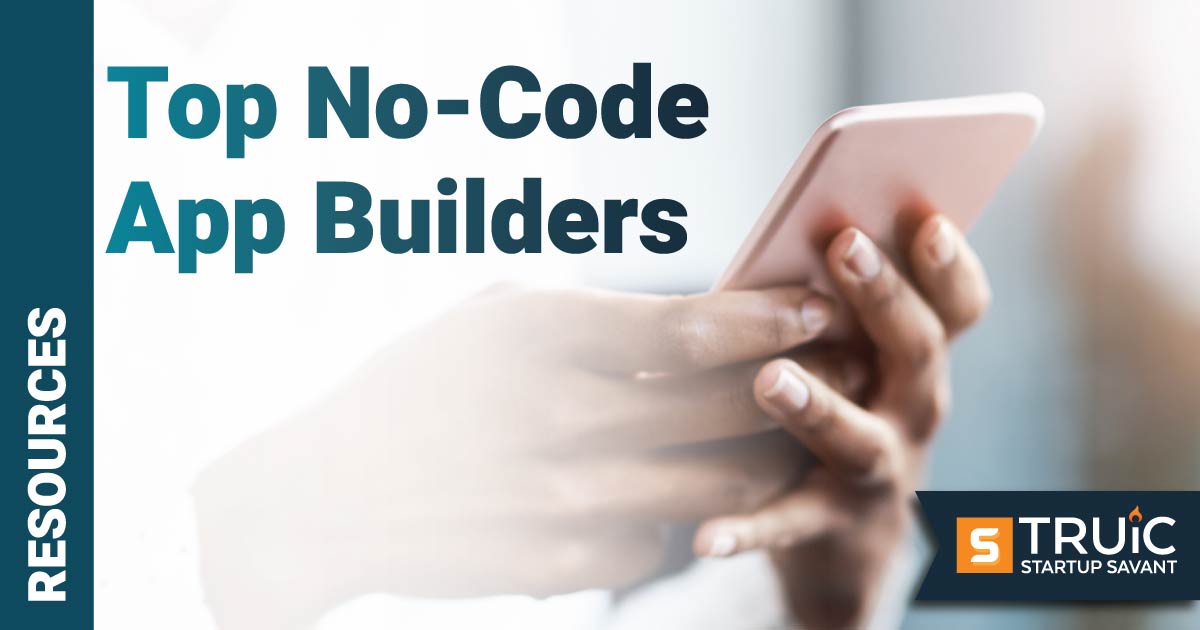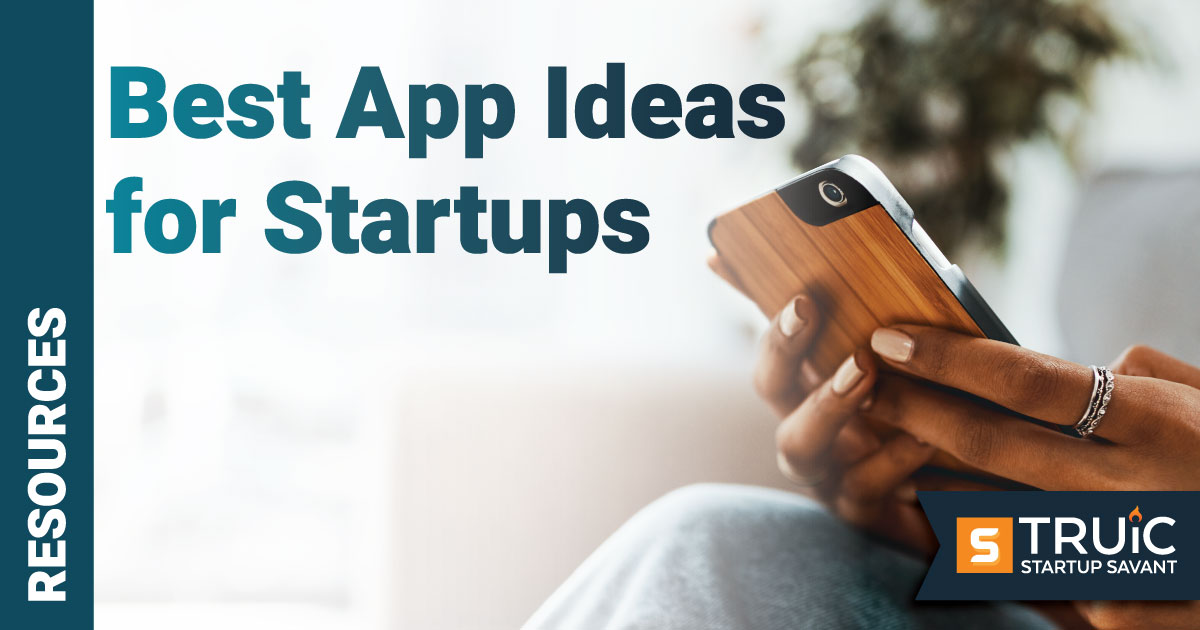Best No-Code App Builders for Aspiring Startup Founders

Last Updated: By Madison Holt
There’s a tide sweeping across the tech startup industry, bringing with it a wave of opportunities for the entrepreneurially-minded. This is the era of no-code app builders, a revolutionary concept that empowers individuals to create their own applications without needing to learn about the intricacies of coding. Aspiring startup founders can now bring their visions to life thanks to these impactful software tools.
With a wide range of no-code app builders available on demand, founders can now focus on their ideas' value, innovation, and scalability rather than worry about coding and programming. But with so many platforms to choose from, how do you choose the best no-code app builder?
This comprehensive guide walks you through the best no-code app builders for startup founders, making it easier than ever to select one that works with your unique needs.
Best No-Code App Builder: Bubble
Top No-Code App Development Tools
Before we dig into the specifics, let's clarify what a no-code app builder is. Essentially, these are platforms that allow you to develop and roll out applications without needing to write a single line of code.
No-code app builders offer user-friendly interfaces with drag-and-drop functions, pre-built templates, and ready-to-use features you can customize to fit your requirements. These tools are designed to make the app-building process as intuitive and straightforward as possible, catering particularly to non-technical founders who have entrepreneurial zeal but lack coding skills.
These innovative platforms are instrumental in leveling the playing field, breaking down barriers to entrepreneurship, and promoting technological democracy.
1. Bubble
No-code app platforms are becoming increasingly popular, and when it comes to quality, Bubble stands at the forefront. It's a platform that enables users to design, develop, and launch apps without ever having to write a single line of code. It's no wonder that over 3 million apps have been built on Bubble, with companies having raised $15 billion using apps created on this platform. With the web editor, you can construct anything from a ChatGPT clone to a full-scale home-swapping service app.
One of the key strengths of Bubble is its flexibility. The platform offers over 6,500 plugins and integrations, meaning you can customize your app just the way you want. Should you get stuck, there's a large developer community at your disposal ready to assist you with your project.
Pros
- Highly flexible with limitless integrations
- Large developer community
- Comprehensive learning resources
Cons
- Can be a little complex for beginners
- Free plan offers limited features
Pricing
Bubble's pricing plans are designed to cater to a broad range of needs. You can start with their free tier at $0/month, ideal for learning and prototyping with limited features. As your needs grow, you may opt for the Starter plan at $29/month, recommended for launching apps, or the Growth plan at $119/month, which adds more advanced features. For teams and businesses seeking to scale up their apps further, there's a Team plan at $349/month. Lastly, the Enterprise plan offers maximum security and customization but requires contacting Bubble for pricing.
Learn more by reading our full Bubble.io review.
2. Glide
Glide is another no-code app builder that strives to make software development accessible to a variety of creators. With Glide's drag-and-drop interface, business software can easily be created without the need for any specialized coding knowledge. Compatible with a wide range of different devices, apps built with Glide connect effortlessly with existing business data from sources like spreadsheets and databases.
Glide allows businesses to reduce software costs by integrating various solution-building tools on a single platform. And the best part? Building fully functional apps on Glide's platform is free of charge.
Pros
- Drag and drop interface
- Connects to existing business data
- Free to build fully functional apps
Cons
- Limited advanced features
- The interface may be confusing for beginners
Pricing
You can start to explore Glide with its free plan, which allows three private users, three apps, and 1,000 updates per month. Beyond that, plans start at $25/month for the Starter plan and go up to $249/month for the Business plan. Each tier offers a different number of private users, apps, and monthly updates. For even more functionality, consider the Enterprise plans with customized limits and features.
3. Backendless
Backendless is all about helping you build complex applications without the need for extensive coding knowledge. This platform goes beyond the norm by taking care of all your backend needs - from databases and business logic to notifications. With Backendless, you get to save time and energy by having all your development needs met in one place.
What stands out about Backendless is its protective UX design process that prioritizes user experience and input. Whether you're a beginner or a professional developer, Backendless has got you covered with its diverse features tailored to different skill levels and project requirements.
Pros
- Handles all backend needs
- Adaptive to different skill levels
- Prioritizes user experience and input
Cons
- Learning curve may be steep at first
- Could be overwhelming for beginners
Pricing
The free plan from Backendless is designed for individuals and small businesses, perfect for getting started. As your business grows, you can upgrade to their $15+/month plans. For medium to large enterprises & established businesses, Backendless provides customized limitless (Pro) and fully managed plans at a price to fit your needs.
4. Softr
Softr is specifically targeted to create customizable apps like client portals, internal tools, and community hubs using data from Airtable, Google Sheets, or SmartSuite. With Softr's pre-built building blocks like lists, charts, forms, tables, and calendars, you can make complex apps through a simple drag-and-drop process.
Softr gives you the ability to connect your apps to different data sources and define granular permissions and access levels.
Pros
- Offers a library of free templates for various functions, which can be customized.
- Allows users to integrate their apps with tools like Zapier, Google Analytics, Stripe, and Mailchimp.
- Offers a 30-day free trial for their paid plans.
Cons
- Each workspace requires its own subscription.
- Limited to only three types of data sources - Airtable, Google Sheets, or SmartSuite.
Pricing
Softr offers a free plan that can be used indefinitely. Paid plans range from the Basic at $49/month to Professional at $139/month, Business at $269/month, and Enterprise with custom pricing plans.
5. Flutterflow
FlutterFlow is a visual builder for creating mobile apps that promises rapid development of app ideas from ecommerce to chat features. FlutterFlow's visual builder can bring your ideas to life rapidly with no limitations due to its ability to add custom code. Gathering user feedback is made easy, and the platform allows you to iterate on your ideas to refine and deploy your apps effortlessly.
Pros
- Offers an option to add custom code whenever necessary.
- Provides additional capabilities like real-time collaboration and seven-day audit logs on higher-tier plans.
- Saves approximately 25% with annual billing.
Cons
- Some advanced features are locked behind higher-tier plans.
- More focused on mobile app development rather than other areas.
Pricing
FlutterFlow has a free plan available and three more tiers: Standard at $30/month, Pro at $70/month, and Teams at $70/per user/month. The monthly billing option offers free features like code downloads and APK downloads.
6. Thunkable
Thunkable allows anyone to create apps without coding and hosts a library of over 50 pre-built design components to help users quick-start their projects. It offers full customizability of your visual design with fonts, colors, and imported images.
The app builder integrates with over 20 services like Airtable and Google Sheets for easy data connection, allowing users to launch their finished apps directly to app marketplaces from the platform.
Pros
- Features a library of over 50 pre-built design components.
- Allows full customization of the visual design.
- Integrates with over 20 different data sources.
Cons
- Private projects revert to read-only if the subscription expires.
- Higher-tier plans are necessary for more advanced support.
Pricing
Thunkable offers a varied range of pricing plans, starting with a free basic plan and leading up to paid individual, business, and large team plans. The paid plans – Starter at $13/month, Pro at $38/month, Business starting at $167/month, and Teams starting at $500/month – provide users with access to advanced features like increased storage, priority support, and app store publishing.
7. Adalo
Adalo has built a solid reputation as one of the best no-code app builders ideal for aspiring startup founders, freelancers, and other individuals without in-depth coding knowledge looking to build their own custom mobile and web apps. Adalo offers an impressive range of features that allow users to tailor apps to their brand's specific aesthetic, including customizable fonts, colors, icons, and logos.
As for the backbone of the app, Adalo provides flexible database options for both existing data and newly constructed databases, integrating with robust backends such as Xano through powerful APIs.
What sets Adalo apart further is its intuitive publishing process, which enables users to publish their apps to a custom domain, Apple App Store, or Google Play Store, making it possible to reach customers on any device or platform. On top of that, Adalo is equipped with monetization features like in-app purchases and Stripe payments, which is an excellent feature for businesses looking to expand and optimize revenue growth.
Pros
- User-friendly and requires no coding knowledge
- Provides tools for creating aesthetically appealing apps with consistent branding
- Integrates with powerful backends like Xano
- Offers monetization features such as in-app purchases and Stripe payments
Cons
- Overage charges apply when plan limits are exceeded
- Custom pricing only available for enterprise needs
Pricing
Adalo offers a range of pricing plans to suit various needs and budgets. The Free tier offers basic features at no cost. The Starter plan, priced at $45/month, includes more enhanced features. At $65/month, the Professional plan provides a more comprehensive set of tools, and the Team plan costs $200/month and is designed for collaborative work on the platform.
Each plan differs by the number of published apps, monthly app actions, app editors, and capabilities. Users are notified when they approach or exceed their plan limits, and overages may cost extra. Even after a published app is unpublished from stores or domains, test apps remain accessible.
8. Appy Pie
Appy Pie's app builder is a user-friendly platform that allows individuals and businesses to create their mobile apps without the need for complex coding. With advanced customization tools and real-time previews, users can easily customize and define the features of their app. This straightforward solution makes app development faster and easier.
Appy Pie is for people with different levels of technical skill. This means that users with any skill level can create their own apps. It includes a visual drag-and-drop editor, where users can arrange different elements to design their app.
With Appy Pie’s app builder, you can make ecommerce, educational, taxi booking, and other apps. It gives you the tools and flexibility you need, and these tools will help you turn your app idea into reality. Through a wide range of customization options, you can create an app that reflects your brand and meets your target audience's needs.
Pros
- User-friendly interface with AI capabilities
- Videos, tutorials, and other learning resources
- Hundreds of templates to choose from
- Offers a 7-day trial
Cons
- Limited customization options
- Not well-suited for complex apps
Pricing
Pricing starts with a Basic Plan at $16, a Gold Plan at $36, and a Platinum Plan valued at $60/app/month.
How to Choose a No-Code App Builder
As helpful as these tools are, it's important to select the one that resonates best with your business goals and needs.
Here are some factors that can streamline your selection process.
Ease of Use
The main goal of a no-code app builder is to make app development easy for those unfamiliar with coding. Therefore, the platform you choose should be intuitive and user-friendly. Don’t forget why you’re using this tool in the first place – you're using it to save time and effort; if it's too complicated or isn't user-friendly, it defeats its purpose. Spend time exploring the platform, try out its features, and make sure it's something you and your team can comfortably navigate.
Flexibility and Customizability
No two startups are the same, so logically, their needs will differ. Look for an app builder that can accommodate your unique requirements. The builder should offer enough flexibility so that you can tweak and adjust your app's design, layout, and functionality according to your business needs. A rigid platform might limit your creativity and the potential of your application.
Scalability
Your startup won't remain small forever – at least, that's not the plan. As your business grows, your application's needs will also evolve. The app builder platform you choose should be able to scale up with your needs without requiring a complete overhaul. It should allow for expansions and upgrades without causing significant operation interruptions.
Community Support and Resources
The strength of the user community and availability of learning resources are crucial, especially when you're new to no code app builders. A vibrant community can offer support and share ideas and solutions that can help in your app development journey. Similarly, abundant learning resources like tutorials, guides, and webinars can make the process much easier.


